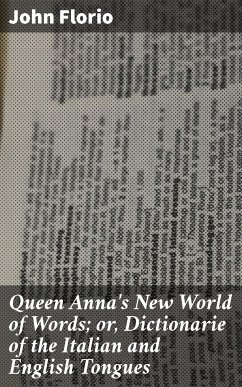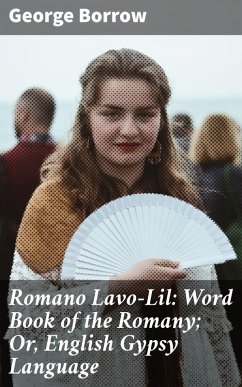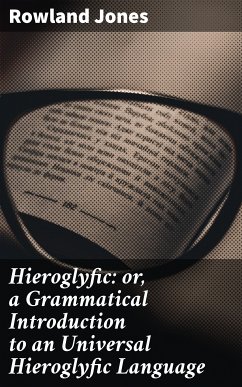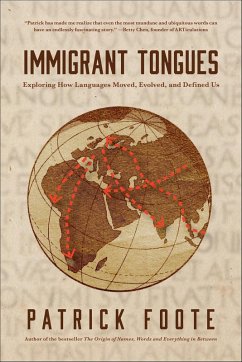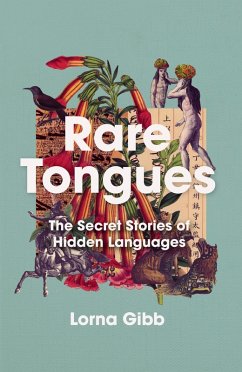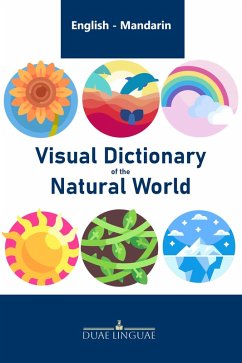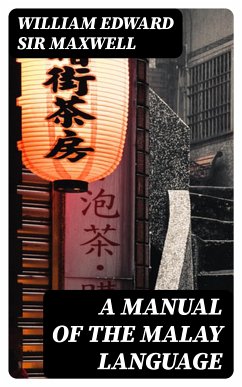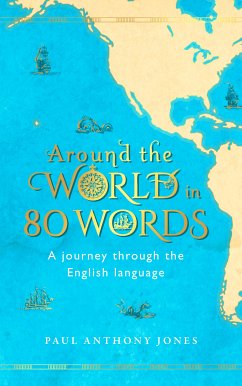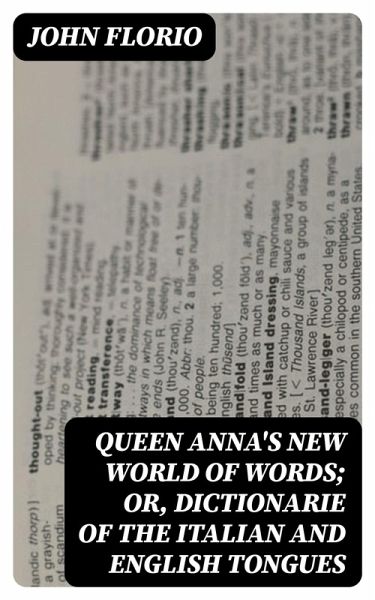
Queen Anna's New World of Words; or, Dictionarie of the Italian and English Tongues (eBook, ePUB)

PAYBACK Punkte
0 °P sammeln!
In "Queen Anna's New World of Words; or, Dictionarie of the Italian and English Tongues," John Florio presents an unprecedented linguistic resource that fuses two rich languages-Italian and English-within the cultural context of the early 17th century. This comprehensive dictionary is not merely a lexicon; it is a celebration of Renaissance humanism, showcasing Florio's intricate and poetic style while capturing the nuances and idiomatic expressions of both tongues. The text reflects the burgeoning interest in language as a gateway to broader human understanding and intercultural exchange duri...
In "Queen Anna's New World of Words; or, Dictionarie of the Italian and English Tongues," John Florio presents an unprecedented linguistic resource that fuses two rich languages-Italian and English-within the cultural context of the early 17th century. This comprehensive dictionary is not merely a lexicon; it is a celebration of Renaissance humanism, showcasing Florio's intricate and poetic style while capturing the nuances and idiomatic expressions of both tongues. The text reflects the burgeoning interest in language as a gateway to broader human understanding and intercultural exchange during this vibrant period in English history, marked by the reign of Queen Anne and the flourishing of literature and arts in England. John Florio, an Italian expatriate and leading figure in English linguistics, was deeply influenced by his own bicultural background and relationships with prominent figures in the court of King James I. His experiences as a translator and instructor were pivotal in shaping his dedication to fostering a deeper comprehension of language and communication. Florio's mission to bridge cultures was not only personal but also aligned with the era's intellectual pursuits, wherein the blending of languages reflected a larger quest for knowledge and creativity. This essential work is highly recommended for linguists, historians, and literature aficionados alike, offering invaluable insights into the linguistic relationships that shaped early modern English. Florio's dictionary serves not just as a practical reference but as a literary artifact that invites readers to explore the interconnections of language and culture, urging them to appreciate the rich tapestry woven by the interplay of nations and tongues.
Dieser Download kann aus rechtlichen Gründen nur mit Rechnungsadresse in A, B, BG, CY, CZ, D, DK, EW, E, FIN, F, GR, H, IRL, I, LT, L, LR, M, NL, PL, P, R, S, SLO, SK ausgeliefert werden.




